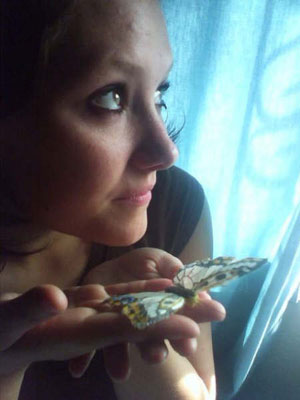All Nonfiction
- Bullying
- Books
- Academic
- Author Interviews
- Celebrity interviews
- College Articles
- College Essays
- Educator of the Year
- Heroes
- Interviews
- Memoir
- Personal Experience
- Sports
- Travel & Culture
All Opinions
- Bullying
- Current Events / Politics
- Discrimination
- Drugs / Alcohol / Smoking
- Entertainment / Celebrities
- Environment
- Love / Relationships
- Movies / Music / TV
- Pop Culture / Trends
- School / College
- Social Issues / Civics
- Spirituality / Religion
- Sports / Hobbies
All Hot Topics
- Bullying
- Community Service
- Environment
- Health
- Letters to the Editor
- Pride & Prejudice
- What Matters
- Back
Summer Guide
- Program Links
- Program Reviews
- Back
College Guide
- College Links
- College Reviews
- College Essays
- College Articles
- Back
Surviving Wonderland
"Alice was beginning to get very tired of sitting by her sister on the bank and of having nothing to do. Once or twice she had peeped into the book her sister was reading, but it had no pictures or conversations in it, "and what is the use of a book," thought Alice, "with no pictures or conversations?"" My hardcover Everymans Library edition of Lewis Carroll's Alice's Adventures in Wonderland was practically an extension of my body until my teen years. When I was seven, I was so desperate for adventure that I used correction fluid and replaced “Alice” with “Shannon” on all 326 pages.
The story about a girl maturing away from home in a world ruled by chaos intrigued me. Alice is trustful, wildly curious, and with the eager enjoyment of life that comes only in the happy hours of childhood, when all is new and fair, and when sin and sorrow are but names – empty words signifying nothing. However, like all of us, she must grow up. One of the more obvious marks of aging, Alice's dramatic changes in size made me feel almost normal when I reached five-foot-eight at age twelve. Over her journey, Alice becomes a stronger person, able to speak out against the nonsensical proceedings of her world. This taught me the importance of adaptability. Though the events of this world never cease to surprise me, I am able to channel Alice's politeness and grace.
Every new encounter is something of a game for Alice; there are rules to learn, and consequences for inadequacy. This is a metaphor for the adaptations to new social situations that every child makes as she grows older. Though I cope well with change, I sometimes feel the same about adulthood as Alice feels about Wonderland: "Everything is so out-of-the-way down here." This bewilderment toward rules certainly resonated with my childhood self. It never made sense to me why dessert could not be first or why some people did not want to be friends. However, I, as Alice did, began to understand the importance of questioning rules that seem unfair. Alice discovers if rules are adhered to blindly, and without a merciful sense of justice, then society becomes worse than childish anarchy, it becomes a tyranny. Though I used this argument to avoid my vegetables as a child, I now understand just how important of a lesson it is to learn.
My grandfather frequently read Alice's story to me, so after his death I clung to the novel as a reminder of him. Whenever I could not sleep because he was not there to tuck me in, I would read aloud to myself. It was then that I began to fully grasp mortality and its inevitable end. Death is the final step of the process of growth Alice experiences. I learned that we are all children and sadly, our bedtime is near. However, like Alice, I know that with adaptability, I too can survive growing up.

Similar Articles
JOIN THE DISCUSSION
This article has 3 comments.
